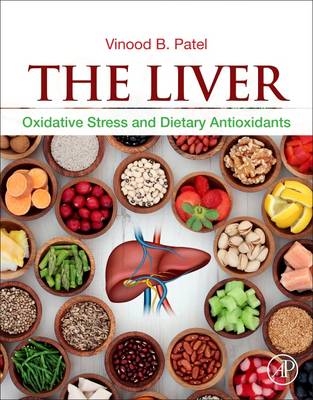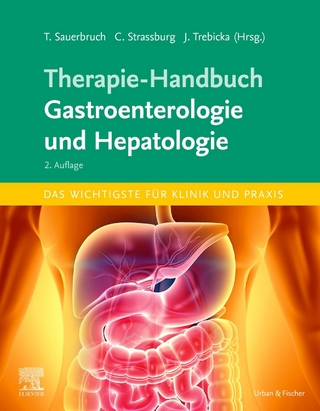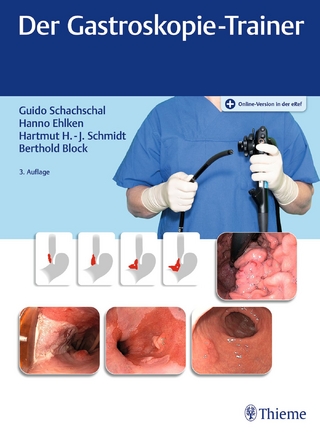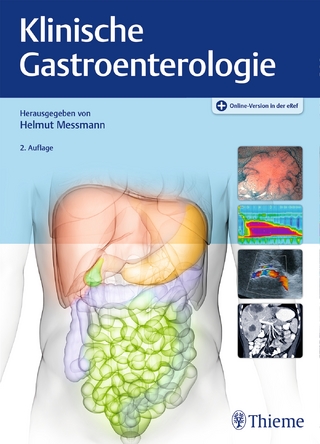
The Liver
Academic Press Inc (Verlag)
978-0-12-803951-9 (ISBN)
Vinood B. Patel, BSc, PhD, FRSC, is currently Professor in Clinical Biochemistry at the University of Westminster. In 2014 Dr Patel was elected as a Fellow to The Royal Society of Chemistry. Dr Patel graduated from the University of Portsmouth with a degree in Pharmacology and completed his PhD in protein metabolism from King’s College London in 1997. His postdoctoral work was carried out at Wake Forest University Baptist Medical School, NC, USA studying structural-functional alterations to mitochondrial ribosomes, where he developed novel techniques to characterize their biophysical properties. Research is being undertaken to study the role of nutrients, antioxidants, phytochemicals, iron, alcohol and fatty acids in the pathophysiology of liver disease. Other areas of interest are identifying new biomarkers that can be used for the diagnosis and prognosis of disease and understanding mitochondrial oxidative stress in neurological disorders and iron dysregulation in diabetes. Dr Patel is a nationally and internationally recognized researcher and has several edited biomedical books related to the use or investigation of active agents or components. These books include The Handbook of Nutrition, Diet, and Epigenetics, Branched Chain Amino Acids in Clinical Nutrition, Cancer: Oxidative Stress and Dietary Antioxidants, Toxicology: Oxidative Stress and Dietary Antioxidants, Molecular Nutrition: Vitamins, The Neuroscience of Pain, Cognitive Behavioural Therapy. He is Editor of the ten-volume series Biomarkers in Disease: Methods, Discoveries and Applications Dr Rajkumar Rajendram is a clinician scientist with a focus on internal medicine, anaesthesia, intensive care and peri-operative medicine. He graduated with distinctions from Guy’s, King’s and St. Thomas Medical School, King’s College London in 2001. As an undergraduate he was awarded several prizes, merits and distinctions in pre-clinical and clinical subjects. Dr Rajendram began his post-graduate medical training in general medicine and intensive care in Oxford. He attained membership of the Royal College of Physicians (MRCP) in 2004 and completed specialist training in acute and general medicine in Oxford in 2010. Dr Rajendram subsequently practiced as a Consultant in Acute General Medicine at the John Radcliffe Hospital, Oxford. Dr Rajendram also trained in anaesthesia and intensive care in London and was awarded a fellowship of the Royal College of Anaesthetists (FRCA) in 2009. He completed advanced training in regional anaesthesia and intensive care. He was awarded a fellowship of the Faculty of Intensive Care Medicine (FFICM) in 2013 and obtained the European diploma of intensive care medicine (EDIC) in 2014. He then moved to the Royal Free London Hospitals as a Consultant in Intensive Care, Anaesthesia and Peri-operative Medicine. He has been a fellow of the Royal College of Physicians of Edinburgh (FRCP Edin) and the Royal College of Physicians of London (FRCP Lond) since 2017 and 2019 respectively. He is currently a Consultant in Internal Medicine at King Abdulaziz Medical City, National Guard Heath Affairs, Riyadh, Saudi Arabia. Dr Rajendram’s focus on improving outcomes from Coronavirus Disease 2019 (COVID-19) has involved research on point of care ultrasound and phenotypes of COVID-19. Dr Rajendram also recognises that nutritional support is a fundamental aspect of medical care. This is particularly important for patients with COVID-19. As a clinician scientist he has therefore devoted significant time and effort into nutritional science research and education. He is an affiliated member of the Nutritional Sciences Research Division of King’s College London and has published over 400 textbook chapters, review articles, peer-reviewed papers and abstracts.
Oxidative Stress and the Liver 1. Oxidative stress in hepatitis C infection 2. Peroxidases and oxidative stress in fatty livers 3. Alterations in nucleocytoplasmic localization of the methionine cycle induced by oxidative stress during liver disease 4. Oxidative stress in iron toxicity of the liver5. Cardiac glycosides and oxidative stress in liver cancer6. Acetaldehyde effects on cellular redox state. 7. The role of glyoxalase-I in oxidant stress of liver damage8. Antioxidants 1 Reactive oxygen and nitrogen species and liver ischemia-reperfusion injury: an overview
Antioxidants and the Liver9. Antioxidants 2 Reactive oxygen and nitrogen species and liver ischemia-reperfusion injury: role of arginine and glutamine 10. Antioxidants 2 Reactive oxygen and nitrogen species and liver ischemia-reperfusion injury: role of lipoic acid11. Oxidative stress as crucial factor in liver disease: Potential Therapeutic effect of Antioxidants 12. L-NAME as a synthetic antioxidant in liver injury 13. Vitamin C, oxidative stress and liver protection 14. Lycopene, liver protection and oxidative stress 15. Vitamin E protection against hyperthyroidism-induced liver oxidative stress16. Citric acid an antioxidant in liver 17. Resveratrol and protection in hepatic steatosis: antioxidant effects 18. Astaxanthin, a marine carotenoid against hepatic oxidative stress: A systematic review. 19. Effects of melatonin as an antioxidant in liver 20. Antioxidant role of the Mayan fruit canistel (Pouteria campechiana) in liver protection21. Endogenous mitochondrial aldehyde dehydrogenase-2 as an antioxidant in liver22. Comparing antioxidants in liver disease: L-carnitine, N-acetylcysteine and genistein 23. Coenzyme Q10, liver protection and oxidative stress 24. Carnosine as a putative antioxidant in usage against liver disease25. Dioscin as a natural saponin and protection in oxidative stress in hepatic fibrosis26. Gallic acid as a putative antioxidant in usage against liver disease27. Oleuropein as an antioxidant and liver protection28. Garlic and Liver Diseases
| Erscheinungsdatum | 16.01.2018 |
|---|---|
| Verlagsort | San Diego |
| Sprache | englisch |
| Maße | 216 x 276 mm |
| Gewicht | 1020 g |
| Themenwelt | Medizinische Fachgebiete ► Innere Medizin ► Gastroenterologie |
| Medizinische Fachgebiete ► Innere Medizin ► Hepatologie | |
| Medizin / Pharmazie ► Physiotherapie / Ergotherapie ► Orthopädie | |
| Technik ► Medizintechnik | |
| ISBN-10 | 0-12-803951-5 / 0128039515 |
| ISBN-13 | 978-0-12-803951-9 / 9780128039519 |
| Zustand | Neuware |
| Haben Sie eine Frage zum Produkt? |
aus dem Bereich


